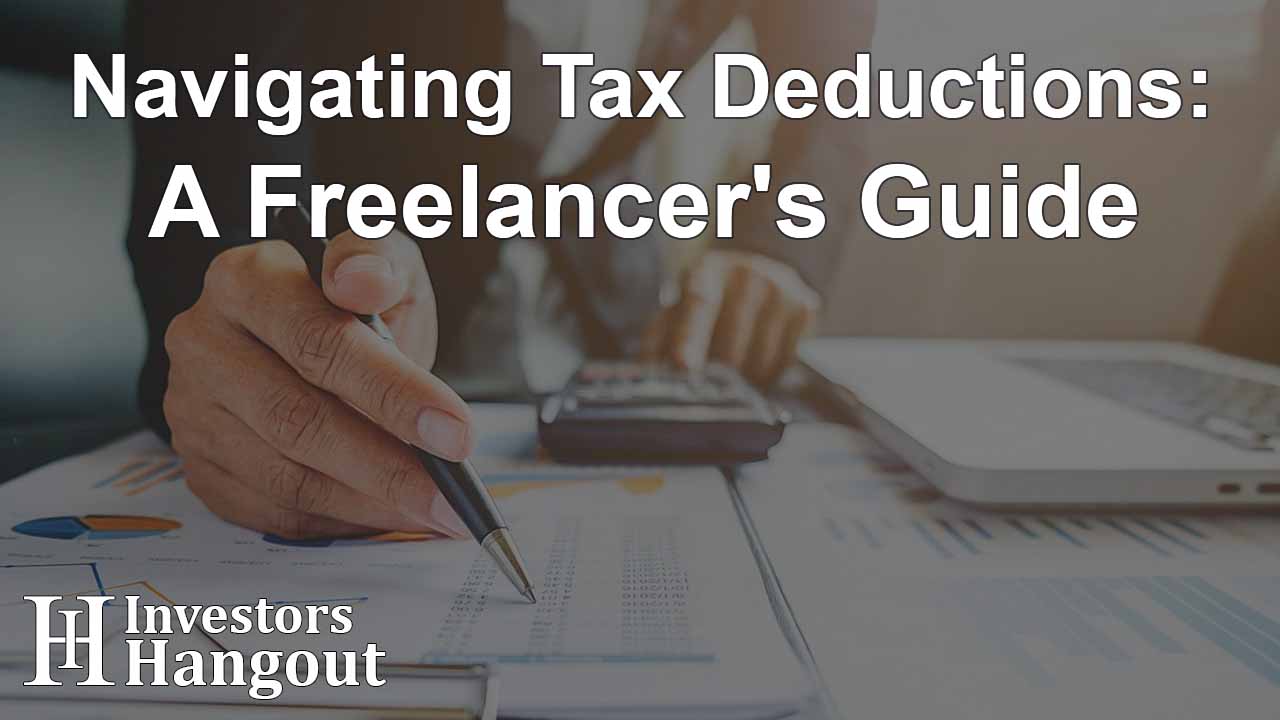Overview of the Tax Deduction Guide for Independent Contractors
It might be difficult for freelancers to maximize their tax savings and pay their taxes. An increasing number of people are turning to freelancing as a source of income as the gig economy grows. If independent contractors are unfamiliar with the nuances of self-employment taxation, they may find it challenging to navigate the world of tax deductions. We'll go over a lot of important pointers and tactics in this post to assist independent contractors save as much money as possible and optimize their tax deductions.
Comprehending Taxes on Self-Employment
Knowing how to handle self-employment taxes is one of the most significant tax issues that independent contractors face. Freelancers are accountable for their own taxes, unlike employees who have taxes deducted from their paychecks. This implies that self-employed people have to set aside a percentage of their income for taxes.
Social Security and Medicare levies make up the two main parts of self-employment taxes. The two components of self-employment taxes are subject to a total rate of 15.3%. It is important for independent contractors to comprehend the tax laws governing self-employment and have sufficient financial reserves to meet their yearly tax liabilities.
Encouraging Tax Benefits for Independent Contractors
Being a freelancer has several advantages, one of which is the potential for tax benefits. Freelancers can lower their taxable income and total tax liability by taking advantage of tax deductions. For independent contractors, a variety of costs are deductable, including travel expenses, business supplies, and bills for home offices.
To maximize their tax deductions, independent contractors should keep detailed records of all of their out-of-pocket costs for the whole year. This entails tracking receipts for transactions carried out on the company's behalf and entering distance traveled for work purposes into the system. It is important for freelancers to utilize tax deductions for additional business expenditures, such as retirement contributions and health insurance payments.
Freelancers can use a 1099 tax calculator to estimate their tax obligations and explore possible deductions. Using a 1099 tax calculator, an independent contractor's projected tax liabilities are determined by accounting for many factors, including self-employment income and deductions. Freelancers may optimize their possible deductions and better prepare for their tax responsibilities by using a 1099 taxes calculator.
As a freelancer, paying quarterly taxes
The IRS mandates that freelancers file their estimated taxes on a quarterly basis. Freelancers have the opportunity to evade fines and interest on past-due taxes by paying their taxes on a quarterly basis. Freelancers may use a quarterly tax calculator to find their annual tax liabilities and figure out their weekly tax payments.
The amount that freelancers need to be paid each quarter is calculated using a quarterly tax calculator. It takes into consideration deductions, self-employment income, and other relevant information. There is a deadline for freelancers to pay their quarterly taxes; if they miss it, they might face fines and interest.
In conclusion, independent contractors may optimize their benefits and deductions even if handling their tax deductions might be difficult without the correct information and resources. Freelancers may lessen their overall tax burden and better manage their tax responsibilities by being aware of self-employment taxes, submitting taxes on a quarterly basis, and utilizing tax deductions.
About The Author
Contact Editor privately here. Or send an email with ATTN: Editor as the subject to contact@investorshangout.com.
About Investors Hangout
Investors Hangout is a leading online stock forum for financial discussion and learning, offering a wide range of free tools and resources. It draws in traders of all levels, who exchange market knowledge, investigate trading tactics, and keep an eye on industry developments in real time. Featuring financial articles, stock message boards, quotes, charts, company profiles, and live news updates. Through cooperative learning and a wealth of informational resources, it helps users from novices creating their first portfolios to experts honing their techniques. Join Investors Hangout today: https://investorshangout.com/
